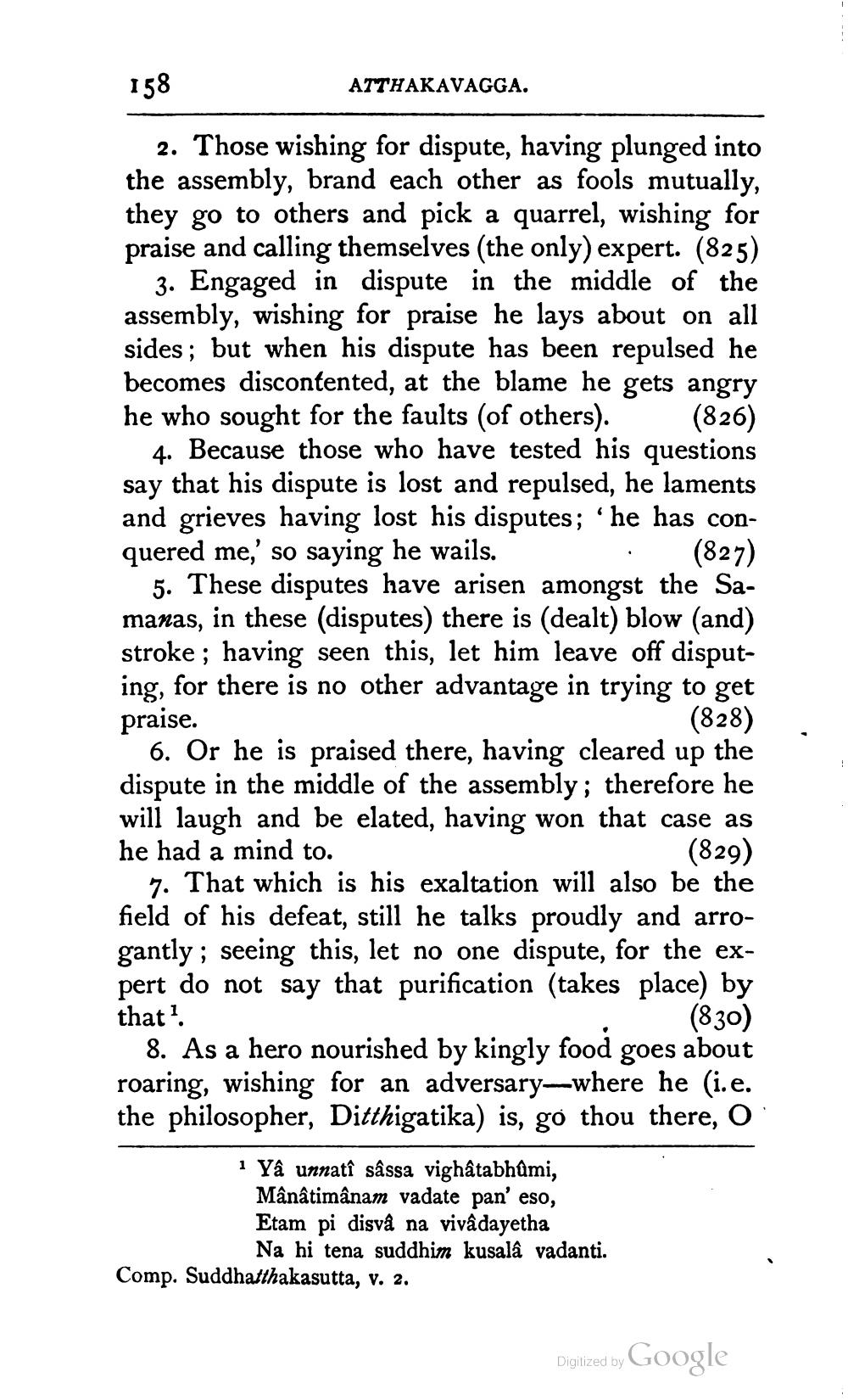________________
158
ATTHAKAVAGGA.
2. Those wishing for dispute, having plunged into the assembly, brand each other as fools mutually, they go to others and pick a quarrel, wishing for praise and calling themselves (the only) expert. (825)
3. Engaged in dispute in the middle of the assembly, wishing for praise he lays about on all sides; but when his dispute has been repulsed he becomes discontented, at the blame he gets angry he who sought for the faults (of others). (826)
4. Because those who have tested his questions say that his dispute is lost and repulsed, he laments and grieves having lost his disputes; 'he has conquered me,' so saying he wails.
: (827) 5. These disputes have arisen amongst the Samanas, in these (disputes) there is (dealt) blow (and) stroke; having seen this, let him leave off disputing, for there is no other advantage in trying to get praise.
(828) 6. Or he is praised there, having cleared up the dispute in the middle of the assembly; therefore he will laugh and be elated, having won that case as he had a mind to.
(829) 7. That which is his exaltation will also be the field of his defeat, still he talks proudly and arrogantly; seeing this, let no one dispute, for the expert do not say that purification (takes place) by that?
(830) 8. As a hero nourished by kingly food goes about roaring, wishing for an adversary-where he (i.e. the philosopher, Ditthigatika) is, go thou there, O
1 Yâ unnatî sâssa vighâtabhūmi, Mânâtimânam vadate pan' eso, Etam pi disvå na vivâ dayetha
Na hi tena suddhim kusalâ vadanti. Comp. Suddhatthakasutta, v. 2.
Digitized by Google




